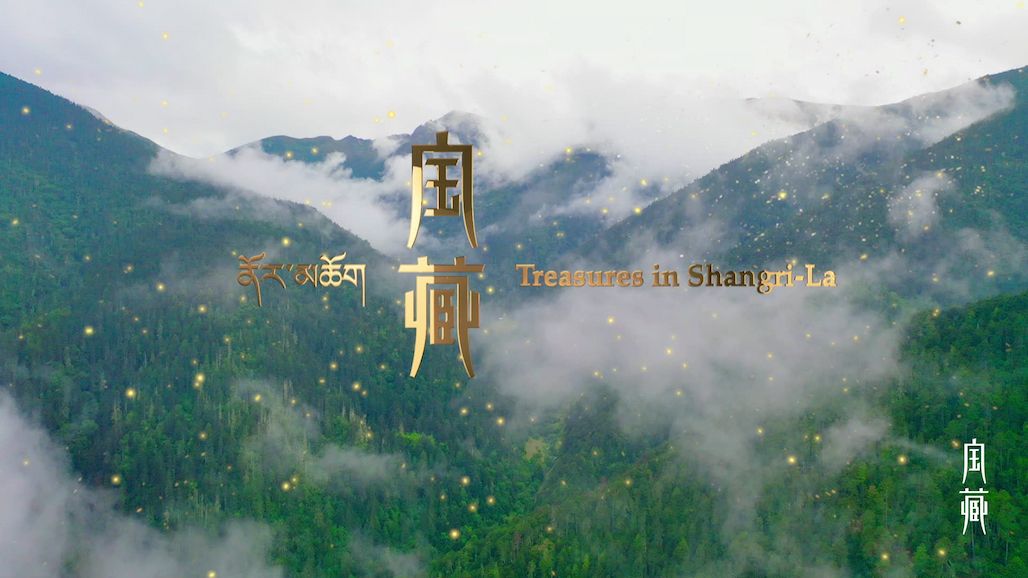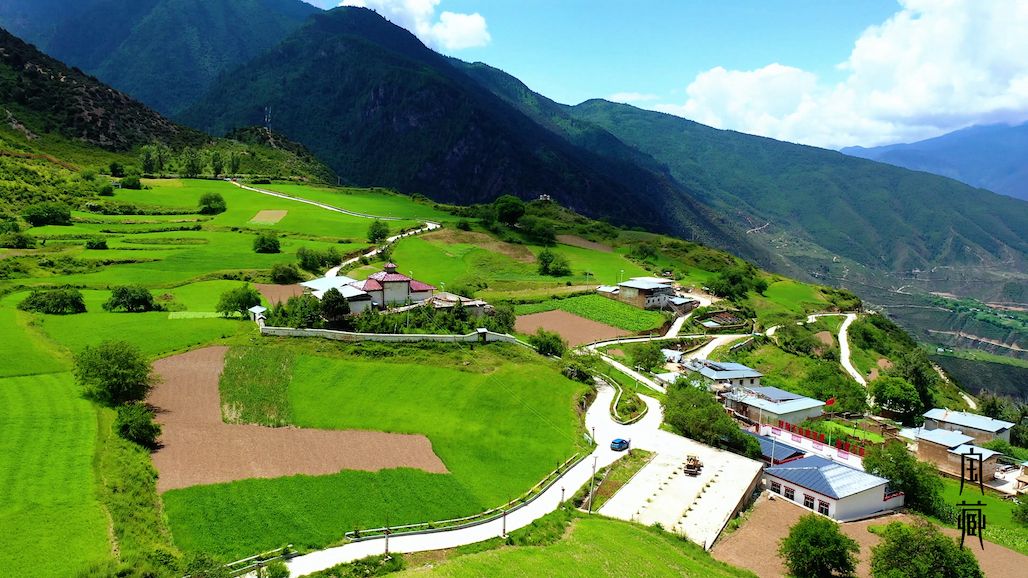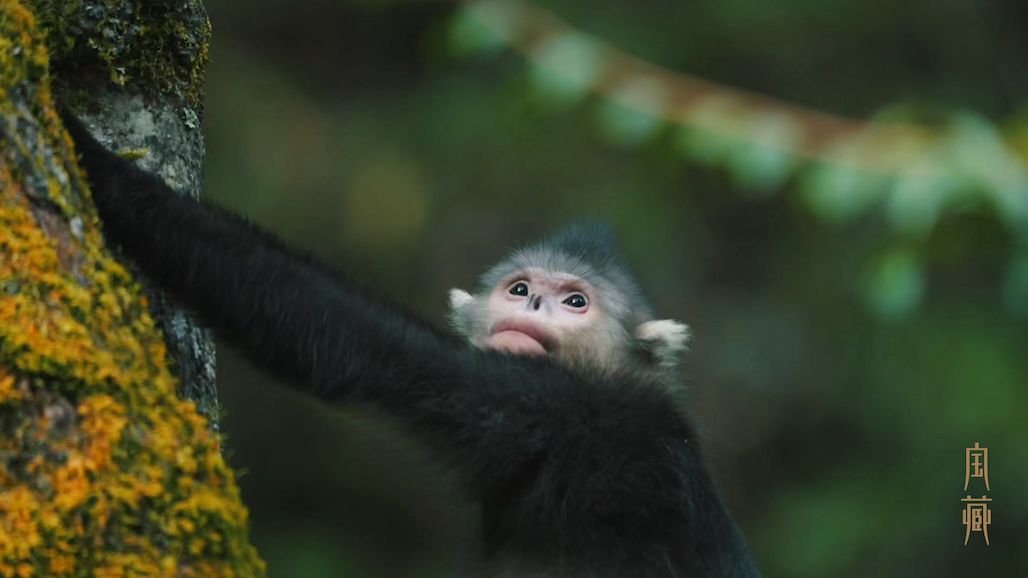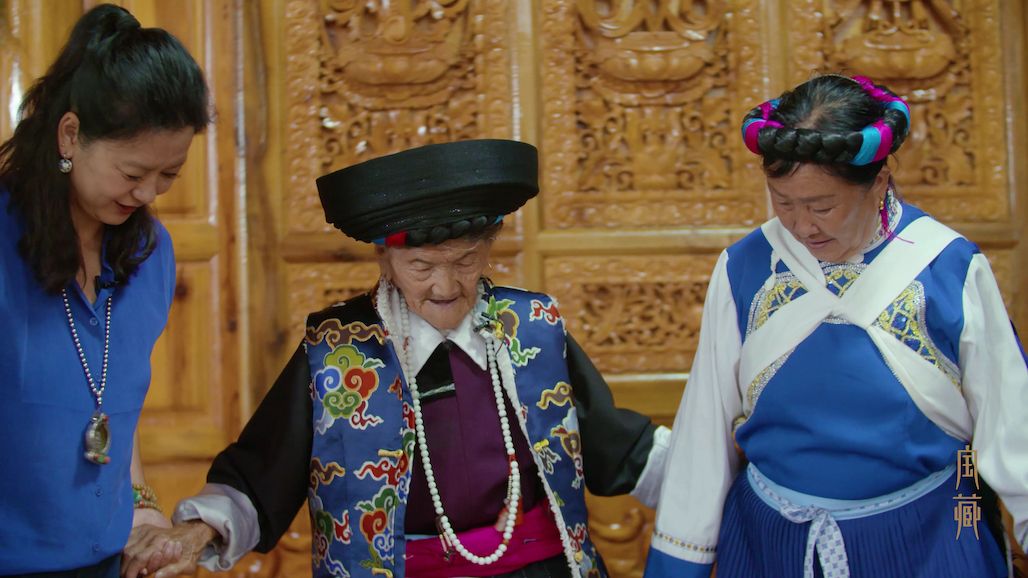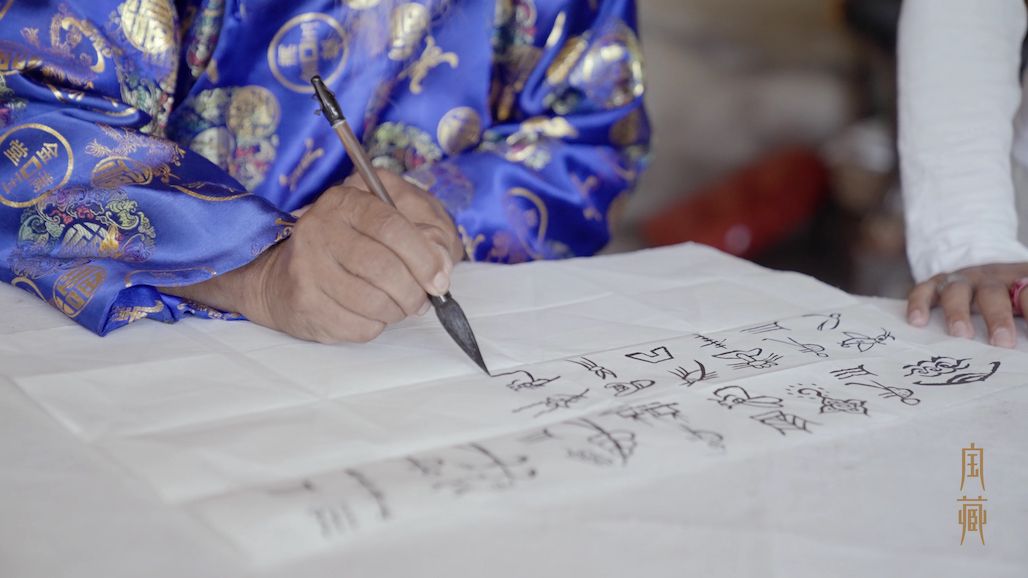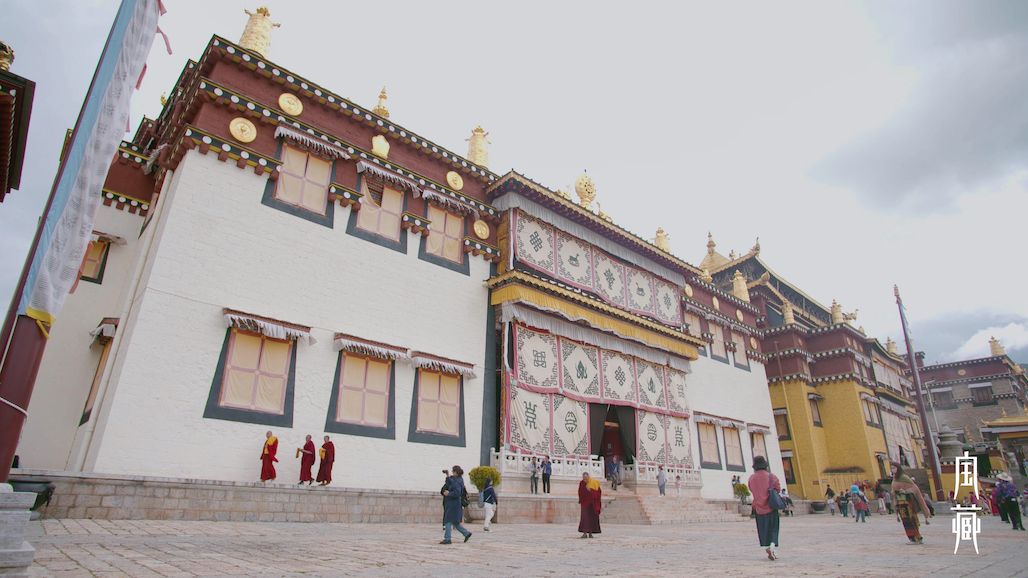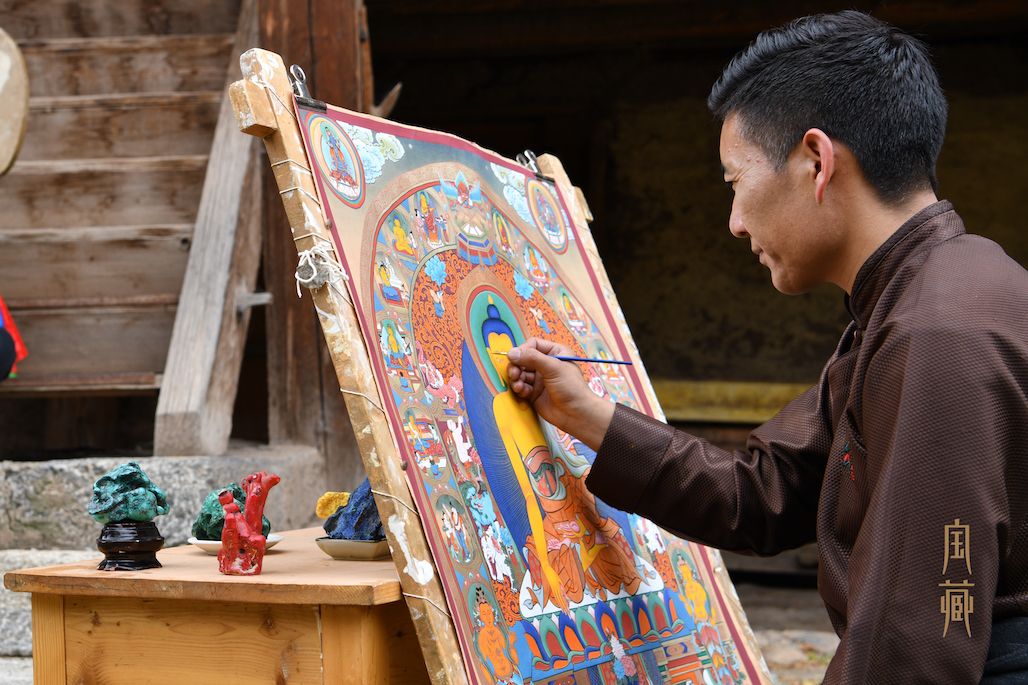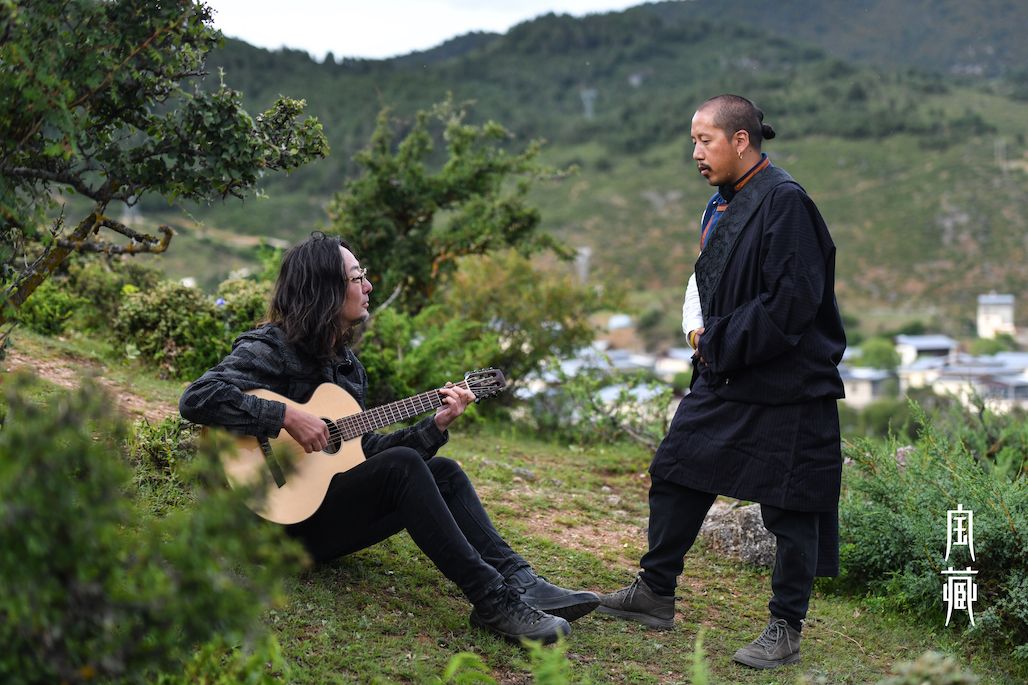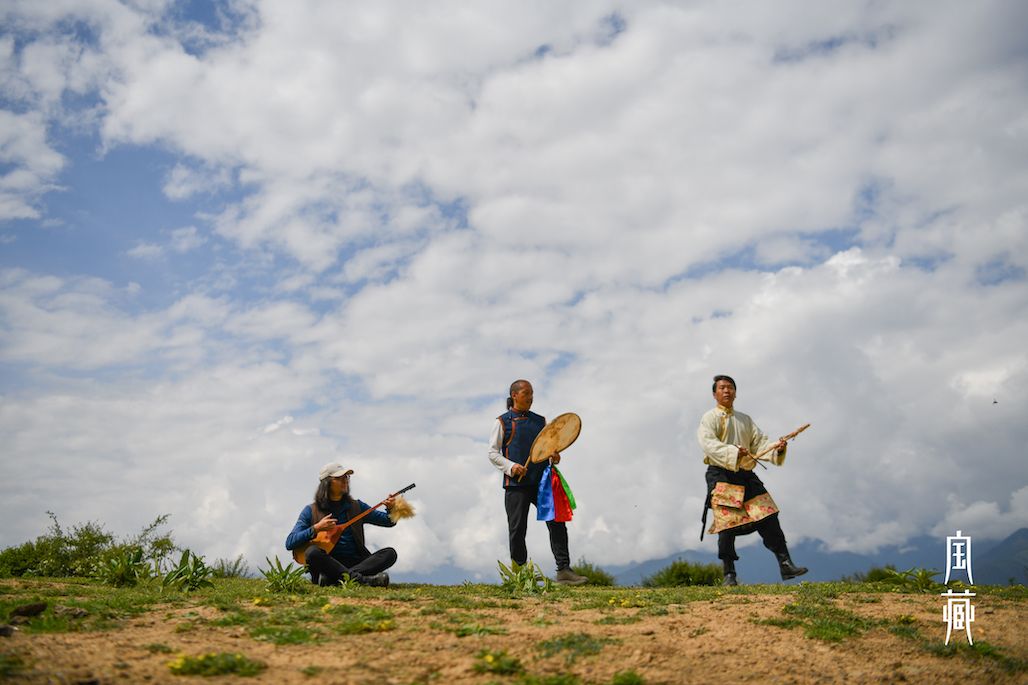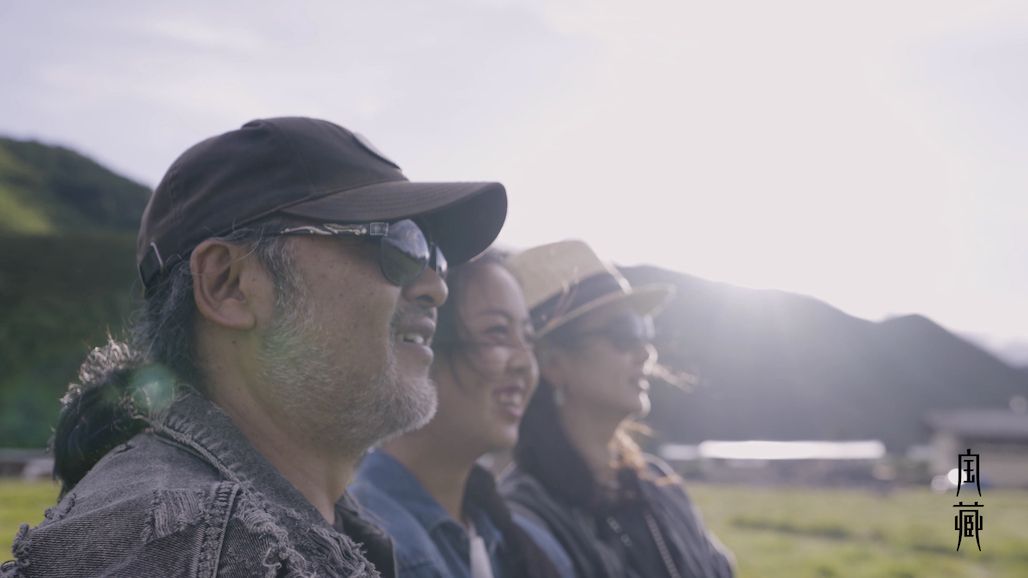China-Japan Co-produced DocumentaryTreasures in Shangri-LaBecomes a Hit in Japan
The Documentary Treasures in Shangri-La
Treasures in Shangri-La,a China-Japan co-produced documentary showcasing the local customs,traditional culture and spiritual beliefs of Tibet-related counties and prefecturesin Yunnan Province, China,debuted on Japan’s Daifu TV at prime time on the15thofOctober. Deng Shuhong,deputy headof Daifu TV,saidthis is one of the most interesting subjects for Japanese audiences.
The Benzilan,Diqing Tibetan Autonomous Prefecture,Yunnan
Diqing Tibetan Autonomous Prefecture is a mystical“Paradise”located at theborderof Yunnan Province,Sichuan Provinceand Tibet Autonomous Region,China,and is known asShangri-La according toBritish novelist James Hilton.Forthousands of years,what precious treasures have been found in Tibetan counties and prefectures in Yunnan,especially in DiqingPrefecture?Why are they so fascinating?Treasures in Shangri-Lawillgivetheanswer.
the Yunnan snub-nosed monkey
The documentary is about60minutes and divided into two episodes.In the first episode,musicians Rexi Cairangdan and Wu Jundevisited Lijiang and Diqing to collectstoriesandwritefolksongs.For this purpose,theyvisit He Guowei,a Naxi Dongba living in Lijiang,who is aged but still devotes himself to carrying forward ethnic culture;He Lin,the last ferrymanworkingon the ancient ferry by the Jinsha River;Zhaxi Peichu,a young Tibetan whohas studied overseas and thenreturned to his hometown to inherit traditional culture;and Huadan Nanjia,a painter whopasses onThangka culture in Dukezong AncientTown.
A100-year-old woman who insists on the transmission of the Guo Zhuang dance
The secondepisode presents some folk art stories following the main line of the trip back to Diqing,the hometown of Yangjin Lamu,a famous Tibetan singer from Yunnan Province,togetherwith her husband Li Peng,a musician of Yiethnicgroup,and theirdaughter Lijia Lamu.The audience can learn the story of a100-year-old man who insists on the transmission of the Guo Zhuang dance,a father and son who work together to protect the Yunnan snub-nosed monkey,a son who inherits his father's craft of making Nixi black pottery,some"new Diqing residents"who havesettleddown in Tachengrunning a homestay business,andsomeTibetan women who make handicrafts to give new life to the old villages.
Dongba symbols
“The biggest feeling I have after watching the documentary is-Beautiful.It not only shows the beauty of natural mountains and rivers in Tibetan prefectures and counties,but also the beauty of humanistic,culture,music and art,and human kindness,reflecting everywhere the new face of China and the protection and inheritance of traditional culture.”According to Deng,Japanese people have alwaysbeen highly respectful to and very curious abouttraditional Chinese culture.ThusTV programs on Chinese history and culture often get high ratings in Japan.
Onthe50th anniversary of the normalization of China-Japan diplomatic relations,theInformation Office of the People’s Government of Yunnan Province,China News Service and Japan'sDaifuTV jointly producedand releasedTreasures in Shangri-La,serving another showcase of China to people in Japan and around the world.
Ganden Sumtseling Monastery,Diqing Tibetan Autonomous Prefecture,Yunnan
What is the“Treasure”?ForTibetan youthZhaxi Peichu,it is the traditional architecture and culture; forforest rangers Yu Jianhua (father)and Yu Zhonghua (son),it is the Baima Snow Mountain and the"national treasure"Yunnan snub-nosed monkey;for Luo Sangen, aninheritor of the craftsmanship ofNixiBlack Pottery, it is thecraftsmanship left by his father...
"To me,these lively characters, as well astheirnoble and simplespiritual pursuit,is the real'treasure',"saidLuo Di,the chief director of thedocumentary.He said that because of their selfless and persistent perseverance,the gorgeous and colorful ethnic culture and the ecological environment of green rivers and mountains are passed on.
Huadan Nanjia,a painter who passes on Thangka culture
Shan Xiaohong,aprofessor of the JournalismSchool of Yunnan University,anddirector of the National Experimental Demonstration Center of Journalism and Communication,praisedTreasures in Shangri-Laas a“treasure”whenshe watched it. She was impressed that the documentary tells the stories of ordinary people in a way that is easily understood and accepted by foreign audiences.The outward theme of reverence for nature and adherence to heritage and the deeper theme of social development and ethnicunity are coordinated and unified,and are also a treasure.
Musicians Rexi Cairangdan and Wu Junde
"Theculture and artarepowerful.On the one hand,we hope to present a true,multi-dimensional and panoramic view of China to the Japanese people through the exploration of Tibet-related counties and prefectures;On the other hand,it is also expected to deepen the Japanese people's understanding of China and enhance the friendly interaction among the people with the spread of cultural intermingling and the common look back at history."said Deng.
Rexi Cairangdan and Wu Junde play folk music with local musician
"Treasures in Shangri-Laimmersed mein the wonderful world of Shangri-La." AJapanese audience Akira Momozono commented,"With thesesimple conversations,and theseclean and touchingsongsand dances,I felt that the spiritual'treasure'would go beyond any material treasures.It isa reflection ofnature.It is thepurevoicethat is notfiltered by any machine,and it is theculture and technology that have beenpassed down from generation to generation."
The famous Tibetan singer Yangjin Lamu with her family
Yoko Ejima,a retiredJapanesefemale teacher in her50s,said,"The hour-long documentaryis too short and I want to watchitmore.I havebeen attracted by the magnificent scenery of Shangri-La and other snowy plateaus in Yunnan,the long and glorious ethnic culture,the simplicity and enthusiasm of the local people,both young and old,and their peaceful and quiet life.I would like to visit Lijiang and Shangri-La in Yunnan sometime in the future."
Treasures in Shangri-Lawill be replayedtwice after its premiere on Daifu TV.In addition,the documentary willalso be releasedonChinanews.comand other media platforms inothercountries.(End)

